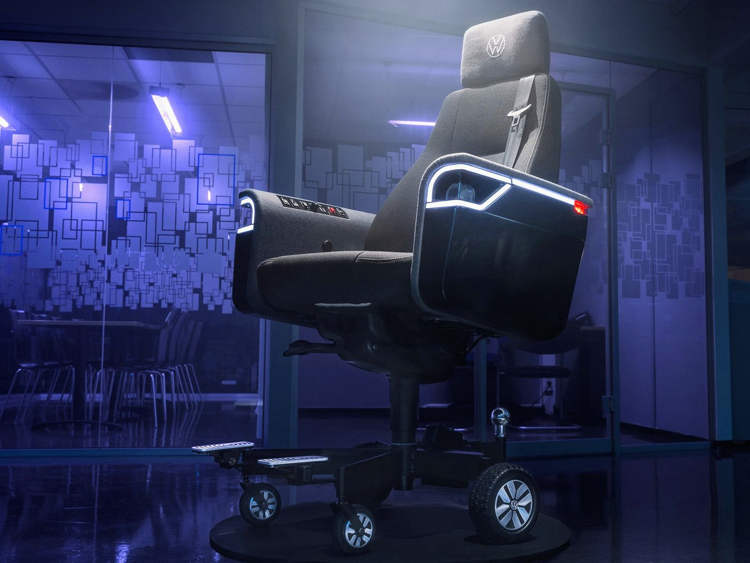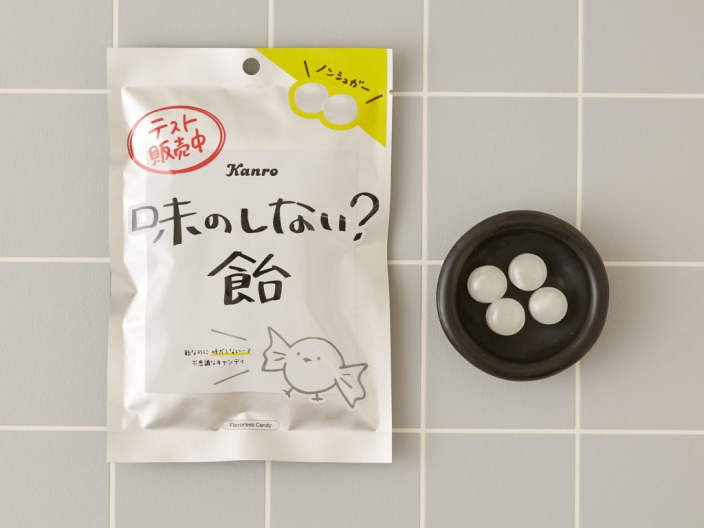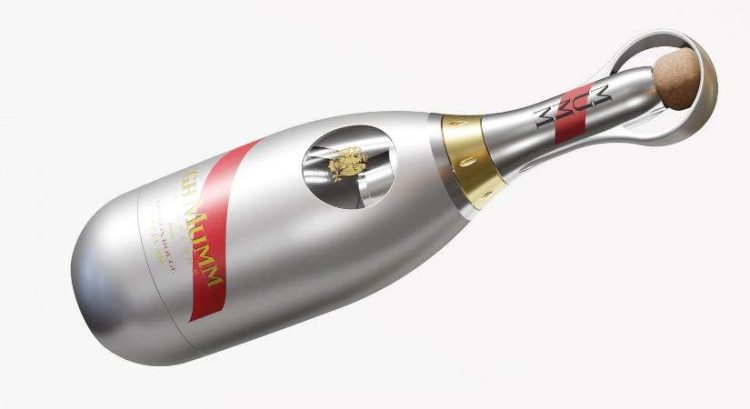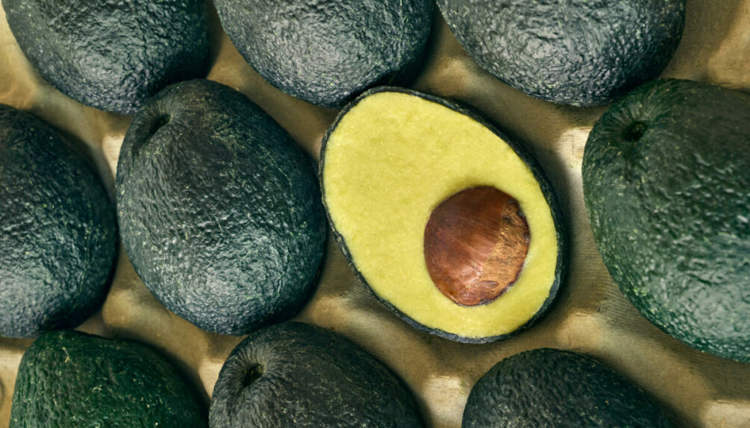Students Invent “Invisibility Cloak” That Makes People Invisible to AI Security Cameras

A team of graduate students at China’s Wuhan University recently unveiled an innovative “invisibility cloak” that circumvents AI-powered security cameras. China is one of the world’s most heavenly surveilled countries, with AI-powered cameras being used for everything from monitoring employees’ toilet habits to students’ attention in classrooms. But as advanced as these surveillance systems may […]
High-Tech Volkswagen Office Chair Has a Top Speed of 12MPH

A team of Volkswagen designers and engineers developed a high-tech office chair that you can drive at a top speed of 12mph (20km/h) Most high-tech office chairs are either simply waterproof, or stainproof, or are designed at a higher standard in terms of ergonomics. But Volkswagen’s recent take on a high-tech office chair shows just […]
Taste the Emptiness – Japanese Company Launches Flavorless Candy

Japanese convenience store chain Lawson recently launched a rather intriguing new product – flavorless candy that apparently tastes like emptiness. Whether it be sweet, sour, salty or even spicy, candy has always been associated with a type of flavor. Well, at least until now, because flavorless candy is a thing these days. Lawson, one of […]
Japanese Company Launches Fur-Inspired Bed Linens That Feel Like Petting a Cat

Japanese clothing and housewares company Nissen recently launched its most intriguing product yet – a line of bed linens and blankets that try to mimic cat fur. Studies have shown that petting a cat for just 10 minutes reduces the levels of stress hormones, and any cat lover will tell you just how relaxing the […]
Robotics Startup Unveils the World’s Fastest Walking Shoes

A Pittsburgh-based robotics and engineering startup recently unveiled Moonwalkers, a pair of battery-powered shoes that it claims can boost walk speeds by up to 250%. At first glance, Moonwalkers look like a pair of futuristic rollerskates, but there is actually a lot more to them than that. You’re actually meant to walk with them the […]
Company Spends Five Years Developing Champagne Bottle Fit For Space Celebrations

French champagne brand G.H. Mumm has poured a lot of time and resources into developing a futuristic champagne bottle that can be used in space. The Mumm Cordon Rouge Stellar is the first champagne designed specifically for space travel. It comes in a half-glass bottle and features a specially-designed stainless steel opening-closing device that curves […]
This Japanese Company Is Working on a Human Washing Machine

Science, a Japanese technology company specializing in bathroom and kitchen innovation, recently unveiled plans to produce a washing machine for humans. Believe it or not, the concept of a human washing machine isn’t new. At the 1970 Osaka Expo, Japanese electronics giant Sanyo Electric showcased its ‘Ultrasonic Bath’, a human washing machine that cleaned, massaged, […]
Startup Turns Desert Sand Into Fertile Soil in Just Seven Hours

Norwegian startup Desert Control claims that it can fight desertification efficiently by spraying sand with Liquid NanoClay (LNC) and turning it into soil in a matter of hours. In the past, we’ve featured many ‘green heroes‘ who have been fighting desertification for decades, using all sorts of techniques, from draught-resistant shrubbery to tree barriers, but […]
Horse Kicks – $1,200 Horse Sneakers Are a Real Thing That Exists

Horse Kicks are just what they sound like – sneakers for horses. Created from popular human models like Air Jordan or Yeezy Boost, each pair sells for at least $1,200. With some very few notable exceptions, horseshoes have remained virtually unchanged for hundreds of years, but that is about to change thanks to sneaker customizing […]
Bodyheat – A Dance Floor That Converts Dancer’s Body Heat Into Energy

An arts venue in Glasgow, Scotland features an innovative dance floor that creates renewable energy from the body heat of dancers. SWG3 hosts some of Glasgow’s largest dance parties, with thousands of people getting together to dance the night away throughout the year. Starting this month, the dancers won’t just be burning energy by busting […]
Glow-in-the-Dark Road Lines Make Driving Feel Like the Movie TRON

Australian company Tarmac Linemarking is trying out a new glow-in-the-dark type of road line that makes every road appear straight out of the classic sci-fi movie TRON. Tarmac Linemarking recently made news headlines in its home country, with multiple high-profile media outlets covering its latest trial run of photoluminescent line markings on a one-kilometer-long stretch […]
Spoons and Bowls That Use Electricity to Make Food Taste Saltier Go on Sale Next Year

Japanese researchers have created smart kitchenware that relies on electricity to make food saltier and tastier without adding any extra salt. Salt makes food taste so much better, but it’s also a very dangerous ingredient that, consumed in excess, can cause serious health problems like high blood pressure, heart disease and stroke. But what if […]
This Mobile Video Game Actually Improves Your Eyesight

METEOR BLASTER is a mobile space shooting video game designed to gauge users’ field of vision and help detect glaucoma, a serious condition that can lead to blindness. Scientists at Tohoku University Graduate School of Medicine teamed up with Japanese television company Sendai Broadcasting Co., Ltd. to create a special video game that they say […]
This Plastic Zipper Bag Is Probably the World’s Simplest Portable Washing Machine

If you’re looking for the simplest way to do your laundry on the go, this plastic zipper bag might be the answer to your problems. Created by Japanese company Kao, the Attack Zero laundry bag is a 5-liter zipper bag designed to help users do the laundry pretty much anytime, anywhere. All you have to […]
Ecovado – The Environmentally-Friendly Fake Avocado You Probably Didn’t Know About

The avocado is one of the most energy and resource-intensive plants cultivated around the world, but apparently, you can opt for a more environmentally-friendly alternative called ‘ecovado’. The popularity of avocados has skyrocketed over the last couple of decades, with the World Economic Forum estimating that about 5 billion kilograms of avocados are consumed annually […]
